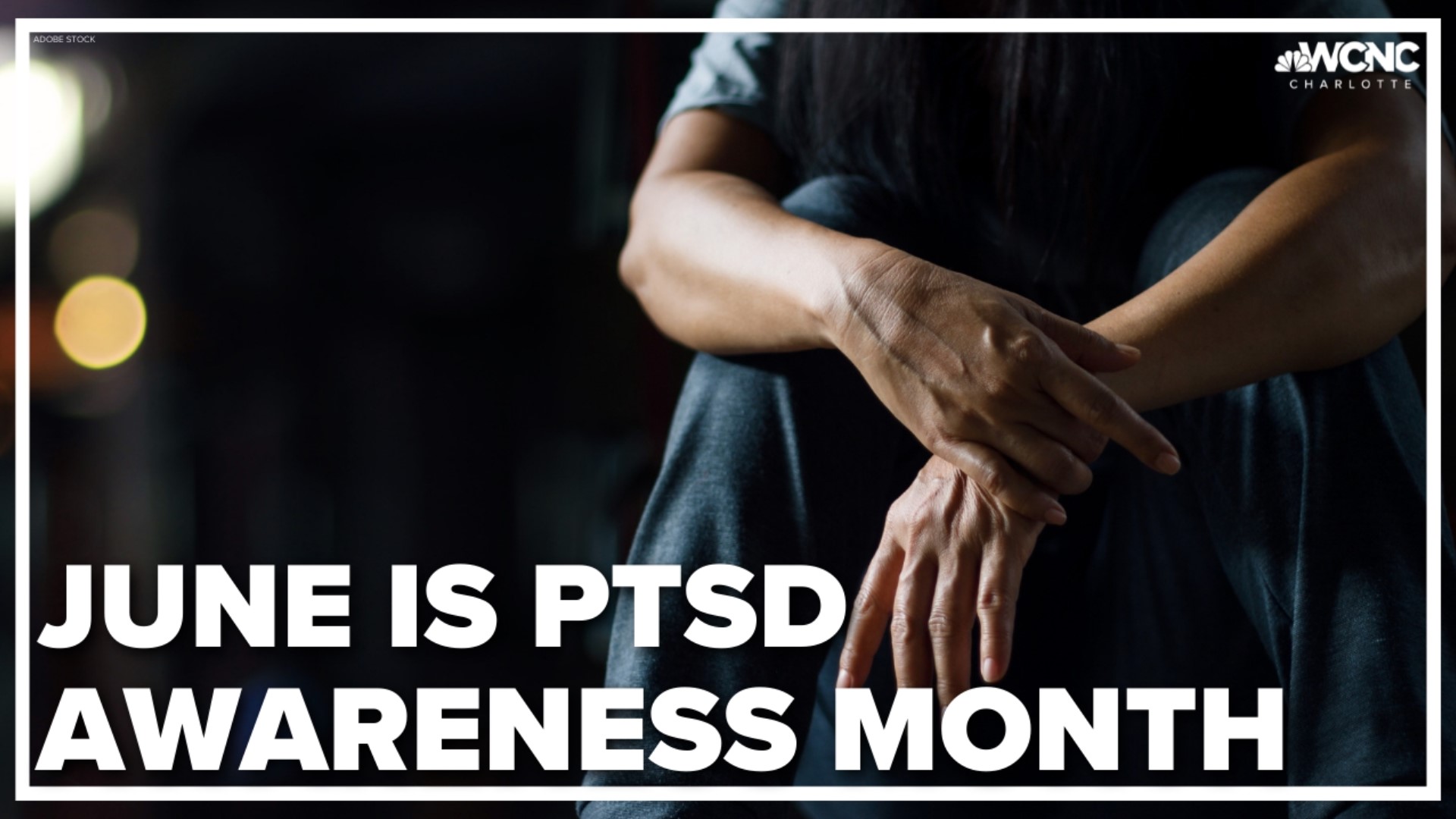CHARLOTTE, N.C. — June is PTSD Awareness Month. Post-traumatic stress disorder is brought on after someone is exposed to a traumatic event. It is estimated that about six out of every 100 people will have post-traumatic stress disorder at some point in their lives.
"Most anyone after going through something like that has some symptoms, they can't stop thinking about it, but they're trying very hard to avoid it," said Dr. Sonya Norman, the director of the PTSD Consultation Program at Veterans Health Administration (VHA). "Maybe they're seeing the world as more dangerous, they're feeling guilty or angry, they're startling easily, having trouble sleeping. For many people, those symptoms just kind of get better over time. PTSD is when those symptoms stay severe and lasts more than a month."
The best way to get diagnosed is to go see a doctor. But you can also do a self-screening at home. The quick questionnaire on the PTSD website can give someone an idea if what they're going through might be PTSD.
Even though PTSD treatments work, most people who have PTSD don't get the help they need. Dr. Norman says the key to getting help is seeing a mental health provider who knows how to treat PTSD.
"We have several very effective treatment options. And that includes both psychotherapy and medication. The psychotherapies that work best are called trauma-focused treatments, where people kind of work through those memories and feelings around the trauma. The different treatments do it in different ways, but it's very effective," said Dr. Norman, adding, "these are pretty relatively short. They don't go on for years and years. It's like eight to 16 meetings with the mental health providers. So it usually takes two, three, or four months and then someone is generally doing a lot better."

